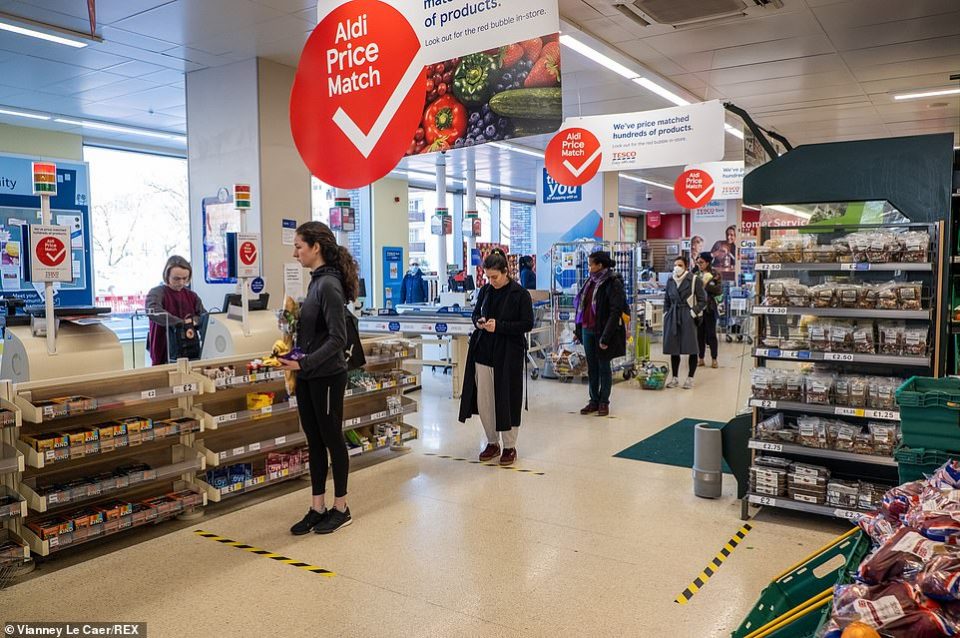FLOOR SIGNALS HAVE IT TAPED IN THE FIGHT AGAINST CORONAVIRUS
Jim Roberts, product manager at Beaverswood, considers the role of floor signals and distancing tape to help supermarkets keep staff and customers safe in the fight against the coronavirus (COVID-19) threat.
Retailers, in particular supermarkets, across the UK have been introducing a raft of measures to ensure people stay safe and protected as far as possible against the risk of coronavirus whilst on their premises and perusing shelves. And these can include the use of good quality signage and effective control systems to improve the control and management of shoppers and prevent them from cramming together in queues to buy food.
Indeed, the Government has issued specific guidance for food businesses* on coronavirus and for supermarkets, this includes ensuring that there is ‘adequate spacing between individuals’ in their stores. While effective measures to support this strategy can vary from store-to-store and location, they should at least include:
- Monitoring the number of customers within store and limiting access to avoid congestion
- Implementing queue management systems to limit crowds gathering at entrances and maintain the two metres distance
- Reminding customers to only buy what they need
Managing people and traffic flows in and around supermarkets can be difficult because they are indoor environments, where maximising retail space to display products whilst ensuring easy and convenient access for shoppers, is always a delicate balancing act. Also, if there is a queue at the check out, people must stand further apart than usual, and supermarkets should take effective steps to control access and communicate important information in these sections to ensure the smooth and efficient flow of good going through the tills to the bagging areas.
While retailers are employing measures to ensure shoppers keep their distance, such as limiting the number of customers allowed in store and placing floor distance guides at till points, people should also be reminded that they must be aware of their own circumstances in stores and do more to ensure they practice safe social distancing. Here, effective safety signage strategically located can play a seminal role in the techniques supermarkets are putting in place to improve safety and remind both customers and staff of their responsibilities throughout the shop floor, office and warehouse and delivery areas.
Supermarkets also maintain critical operations away from their stores where they are implementing similar safety measures to protect staff from coronavirus. Properly located and suitably deployed, floor signal and distancing tape measures can be among the first line of physical defence in the battle to alert staff to the dangers and amplify warning messages in regional warehouse and distribution centres with clarity and resonance.
The key to success is to take a holistic approach to health and safety management during COVID-19, which can be achieved by considering the task, overall retail environment, equipment used and people using the facilities. This is considered good practice and seen as a sensible first step in developing an effective ant-coronavirus strategy.
In these difficult times, eye-catching floor signals and taping practices, supported by clear and unequivocal public safety messages, can be deployed to protect, advise and inform in the supermarket environment, ensuring people stay safe and remain two metres apart in public queues.
For instance, our self-adhesive, visually impactful floor signs and hazard tapes are designed to highlight and encourage social distancing in queue lines, and feature clear warning instructions for shoppers to follow. Many retailers are also opting for the footprints and corner markers, which are also available in a range of eye-catching colours, to ‘zone’ mark queuing distances and control crowds in stores.
It’s important to recognise that every supermarket is different with its own unique set of risks. However, the adoption of comparatively simple measures is not only relatively inexpensive but also highly effective in managing both people and risk.
It’s also important to ensure that solutions are tailor made to meet individual circumstances. Eschewing the one-size fits all approach will lead to a more effective balance between productivity and wellbeing. Think about your requirements in terms of quality, reliability and performance, and consider also how your supplier can add value in helping you understand the role that floor markers and queue management systems play combatting this awful virus and delivering a safer tomorrow.



